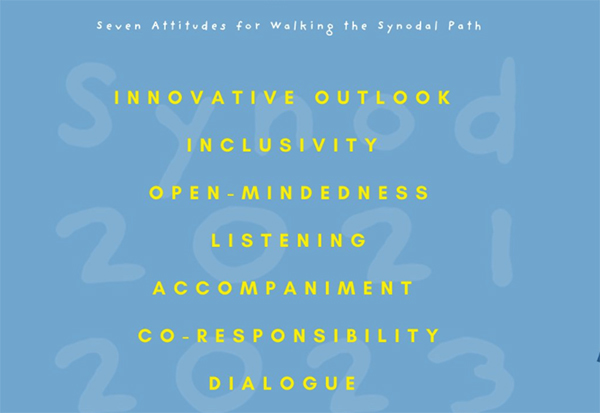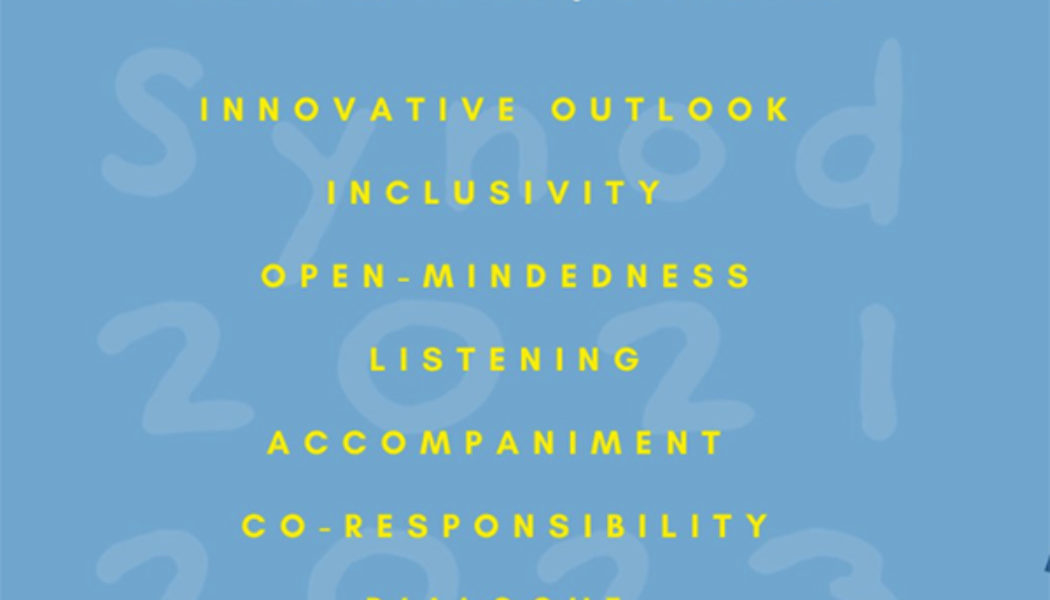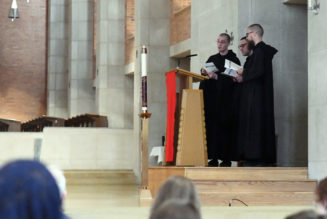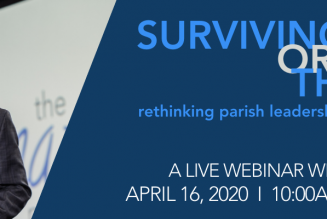Sorry about the relative silence. I’m in the very last stages of finishing this book. This morning I wrote the last section of primary text. Today I’m going to revise one last section, collate everything into a single file, gather all the research and idea notes I’ve made by hand and on the computer, and then start going through the entire manuscript, adding what’s missing, correcting errors, making the voice consistent and correct for the age level. And, oh, cut. I think it’s waaaaay too long. That will be today and tomorrow, then this weekend I’ll write the two introductions go through the whole thing again on Monday, and then push SEND on Tuesday morning and be..freeeee…
…until the revision notes come in, that is….
But, as we say in Instagram Land, I just wanted to pop on here and contribute something to this week’s Synod discussion.

I do have thoughts on the mindset that puts this out there and actually thinks this is what Catholics need and want right now – and this offers any meaningful contribution to alleviate all the countless ways that human beings are suffering right now – but I can’t take time away from my work to pull that together in a coherent fashion.
Translation: I would really love to but I am going to be self-disciplined for once and tend to my work instead of spending fun hours searching the Internet for appropriate and hopefully hilarious gifs and memes in response to this corporatist obtuseness.
So all I can do is link to some posts I’ve written over the past few months on this thing.
The great concerns that course through the surface of these documents are inclusion and listening. If you’ve been paying attention to Pope Francis over the years, this will be no surprise. No one should feel left out. God loves everyone, and the Church must be a witness to this in word, action and structure.
The centering of this message and the almost palpable anxiety that frames it interests me a great deal, historically. I have spent a lot of time pondering the before-and-after situations, the framing and the straw men arguments. There’s a lot to unpack, and it’s not just about Church – it’s about culture, too.
What you can probably see is that new-stuff-in-the-Spirit talk annoys me. More than that, it raises my hackles and makes me suspicious. What I’m touching on in this blog post – how contemporary calls to Catholics to live the moral life, as reflected in today’s Gospel, are detached from the deep well of Catholic tradition and experience – is a feature, not a bug, of this Synod talk. It’s not a good thing – not because we want to be closed to the Spirit – but because the rhetoric diminishes our necessary engagement with the deep, Spirit-formed life of the Church as it’s been lived over the centuries, all over the world. I mean, it wasn’t perfect, but it worked fairly well, raised up lots of saints, created massive and creative and responsive institutions that ameliorated the suffering of millions.
I’d much prefer, if trying to figure out how to make the Church a more powerful witness to the Gospel in the world today, to begin there – the Gospel and then the richness of two thousand years of experience and wisdom (and mistakes) – than just constantly being pointed to some ambiguous “new” thing that the “Spirit” is going to guide me towards.
Because you know what? All that talk, reducing authority to the person of the guy holding the microphone at the moment, all that ignore the past, trust the Spirit talk comes across to me as trust us more than anything else. Which in turn sounds like a call, not so much to clarity, but to rationalization.
I trust Jesus, Scripture and the warp and woof of Catholic tradition – which is ambiguous at times, which shifts and develops, but actually, if you can stop being so rigid and ideological about the whole thing, is actually very consistent and clear on the fundamentals – like how to live your life as a disciple of Jesus: sacrificial love, self-denial, detachment, simplicity and then even more sacrificial love.
No matter what your station in life or where your home is or what you do for a living – it’s the same for all of us.
We don’t find more Jesus in chasing the clout of the new. No, in obeying Jesus in humility and openness, informed by the richness and truth of Catholic experience, every day – every hour – we find something, well – new.
We don’t do good stuff because The Synod or the Pope Wants Us To. We don’t do it even because we feel moved by emotions we’ll label the Spirit today.
We follow Christ because we are baptized and he calls us.
Catholic life and practice shifts, changes, ossifies and is reformed and renewed. It’s the Holy Spirit at work in all of that.
But it’s a Spirit whose actions must be carefully discerned and sifted as we engage with it and work so hard to be faithful and, most importantly, to bring the power of the Gospel, Spirit-led, into a hurting world.
Because, as we have seen time and time again, in ancient and recent history, as well as in our own lives: all that heady, optimistic Spirit-talk? As we see all around us, constantly and consistently:
Is there anything in life easier to weaponize, because we are yearning so deeply, than the promise of something new, coming to us via the warm assurances of those who identify the movement of the Spirit – good! – with whatever they want to happen next?
Resistance to “new” can, indeed, be resistance to the Spirit. It can also be fidelity to Christ. Whether that thing is “new” or not has absolutely nothing to do with the authenticity of the moment, idea or expression. “New” as I said before, is not a meaningful category for discernment in either a positive or negative sense, and neither is “old.”
In God’s time, they are meaningless terms.
Things that might not make sense (12/18)
- The Church must be a listening Church
but…
- No, no, no. Not to you.
What a pity if, when the good, self-sacrificing, faithful people come to the church once a week to lay their worldly cares and troubles before the altar of God, looking for solace and peace for one brief hour, after the long days of toil and weariness, of temptation and maybe sin and discouragement, what a pity, if, when they come for bread — the bread of life — we give them a stone! — and if, when they are longing to lift up their hearts to God, as in the Preface we bid them to do, we rather drag them down to material things, to money, money and schemes for raising money.
Maybe substitute meetings, meetings and meetings about more meetings for that last phrase…eh?
Join Our Telegram Group : Salvation & Prosperity








